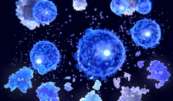Lesser-known facts about esophageal cancer
April 2023: April month is observed as esophageal cancer awareness month. Esophageal cancer is a type of cancer that affects the esophagus, the muscular tube that connects the throat to the stomach. Here are some lesser-known facts about esophageal cancer:
- It can be difficult to diagnose early: Esophageal cancer often does not cause symptoms until it has spread to other parts of the body. This can make it difficult to detect in its early stages.
It is often linked to lifestyle factors: Certain lifestyle factors can increase the risk of developing esophageal cancer, including smoking, heavy alcohol use, and obesity.
Gastroesophageal reflux disease (GERD) can increase the risk: GERD, a condition in which stomach acid backs up into the esophagus, can increase the risk of developing esophageal cancer, particularly adenocarcinoma.
There are two main types: Esophageal cancer can be classified as either adenocarcinoma or squamous cell carcinoma. Adenocarcinoma is more common in the United States, while squamous cell carcinoma is more common in other parts of the world.
Treatment options depend on the stage of the cancer: Treatment for esophageal cancer may include surgery, radiation therapy, chemotherapy, or a combination of these. The specific treatment options depend on the stage of the cancer and other factors, such as the patient’s overall health.
- Survival rates vary widely: The five-year survival rate for esophageal cancer is around 20%. However, this can vary widely depending on the stage of the cancer at diagnosis and other factors.
- It is more common in men: Esophageal cancer is more common in men than women, and the risk increases with age.
- There may be a genetic component: Some cases of esophageal cancer may have a genetic component, and individuals with a family history of the disease may be at increased risk.
- It can be prevented: Lifestyle changes, such as quitting smoking, limiting alcohol intake, and maintaining a healthy weight, can help reduce the risk of developing esophageal cancer.
- It can be detected through screening: Individuals with a higher risk of developing esophageal cancer, such as those with a history of GERD, may benefit from regular screening to detect the disease in its early stages.
Susan Hau is a distinguished researcher in the field of cancer cell therapy, with a particular focus on T cell-based approaches and cancer vaccines. Her work spans several innovative treatment modalities, including CAR T-cell therapy, TIL (Tumor-Infiltrating Lymphocyte) therapy, and NK (Natural Killer) cell therapy.
Hau's expertise lies in cancer cell biology, where she has made significant contributions to understanding the complex interactions between immune cells and tumors.
Her research aims to enhance the efficacy of immunotherapies by manipulating the tumor microenvironment and exploring novel ways to activate and direct immune responses against cancer cells.
Throughout her career, Hau has collaborated with leading professors and researchers in the field of cancer treatment, both in the United States and China.
These international experiences have broadened her perspective and contributed to her innovative approach to cancer therapy development.
Hau's work is particularly focused on addressing the challenges of treating advanced and metastatic cancers. She has been involved in clinical trials evaluating the safety and efficacy of various immunotherapy approaches, including the promising Gamma Delta T cell therapy.
- Comments Closed
- April 5th, 2023





Digestive Tract Cancer Insights, Early Signs of Esophageal Cancer, Esophageal Cancer Awareness 2024, Esophageal Cancer Facts, Lesser-Known Esophageal Cancer Info, Rare Esophageal Cancer Symptoms, Uncommon Cancer Facts, Understanding Esophageal Carcinoma
CancerFax is the most trusted online platform dedicated to connecting individuals facing advanced-stage cancer with groundbreaking cell therapies.
Send your medical reports and get a free analysis.
🌟 Join us in the fight against cancer! 🌟
Привет,
CancerFax — это самая надежная онлайн-платформа, призванная предоставить людям, столкнувшимся с раком на поздних стадиях, доступ к революционным клеточным методам лечения.
Отправьте свои медицинские заключения и получите бесплатный анализ.
🌟 Присоединяйтесь к нам в борьбе с раком! 🌟